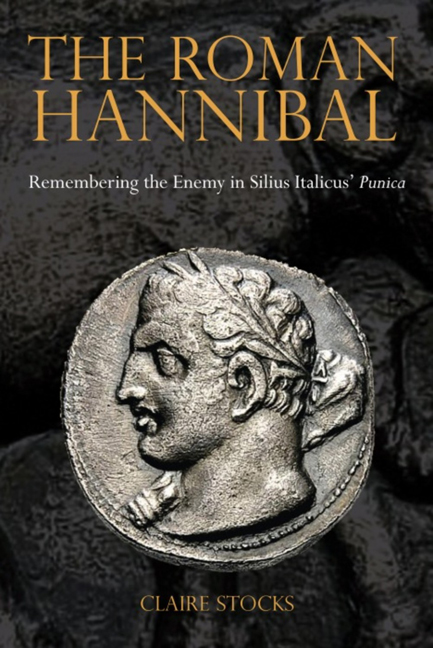Book contents
- Frontmatter
- Contents
- Acknowledgements
- Texts and Translations Used
- Introduction: Silius Italicus and the Roman Hannibal
- Chapter One The Roman Hannibal Defined
- Chapter Two Before Silius: The Creation of the Roman Hannibal
- Chapter Three Silius' Influences
- Chapter Four Epic Models
- Chapter Five Silius' Roman Hannibal
- Chapter Six Out of the Darkness and into the Light
- Chapter Seven Hannibal's Decline after Cannae: Separating Man from Myth
- Chapter Eight Imitators and Innovators
- Chapter Nine Band of Brothers
- Chapter Ten The ‘Lightning Bolts’ (Fulmina) of War
- Chapter Eleven The Man and his Myth: The Self-Defined Roman Hannibal
- Conclusion: The Crossing of the Worlds: The Move from Internal to External Narrative
- Bibliography
- General Index
- Index locorum
Chapter Four - Epic Models
- Frontmatter
- Contents
- Acknowledgements
- Texts and Translations Used
- Introduction: Silius Italicus and the Roman Hannibal
- Chapter One The Roman Hannibal Defined
- Chapter Two Before Silius: The Creation of the Roman Hannibal
- Chapter Three Silius' Influences
- Chapter Four Epic Models
- Chapter Five Silius' Roman Hannibal
- Chapter Six Out of the Darkness and into the Light
- Chapter Seven Hannibal's Decline after Cannae: Separating Man from Myth
- Chapter Eight Imitators and Innovators
- Chapter Nine Band of Brothers
- Chapter Ten The ‘Lightning Bolts’ (Fulmina) of War
- Chapter Eleven The Man and his Myth: The Self-Defined Roman Hannibal
- Conclusion: The Crossing of the Worlds: The Move from Internal to External Narrative
- Bibliography
- General Index
- Index locorum
Summary
The paradox and the hero
This book aims to show that Silius Italicus’ Punica should be viewed as the definitive text for Rome's exploration of Hannibal as a cultural icon. Viewed within the context of those texts which focus on Hannibal, this interpretation is relatively unproblematic, for Silius presents a reading of the Roman Hannibal that is more detailed with respect to its exploration of Hannibal's character and motivations than any surviving Hannibal text that precedes it. But Silius’ epic is also part of the Virgilian and post-Virgilian epic tradition. The result is that his Hannibal, though overtly inspired by that of Livy, is also inseparable from the epic heroic models established by Homer, Virgil, Lucan et al. It is an association that creates something of a paradox: Silius’ Hannibal is an exemplum for Rome's uiri because he presents it with a new model of individual leadership, but at the same time his character is modelled upon the established exemplary heroes of Latin and Greek epic.
‘The epic hero occupies a secure niche in modern criticism. His reassuring presence guarantees the unity of an epic poem and directs our scrutiny when we search for a theme’ (Feeney, 1986a: 137). The Punica's heroes drive the epic narrative forward: their actions distinguish this narrative from those of other works on the Second Punic War and by their imitation of the epic uiri who precede them they ensure that Silius’ epic is in entrenched primarily in the post-Virgilian tradition. Yet the Punica is a problematic epic in that it has no one clearly defined, central hero. So,too, its position as both an epic and an account of Hannibal that is rooted in a historiographic background creates the potential for genre instability
Yet the Second Punic War is a topic that lends itself to epic for, as the second of three Punic wars, the Hannibalic conflict enables Silius to embrace the epic topos in medias res and to start ‘in the middle of things’. But the line that Silius’ Hannibal must tread in order to maintain his role as both part of the Roman Hannibal tradition and part of the heroic epic tradition is a fine one.
- Type
- Chapter
- Information
- The Roman HannibalRemembering the Enemy in Silius Italicus’ Punica, pp. 53 - 79Publisher: Liverpool University PressPrint publication year: 2014



